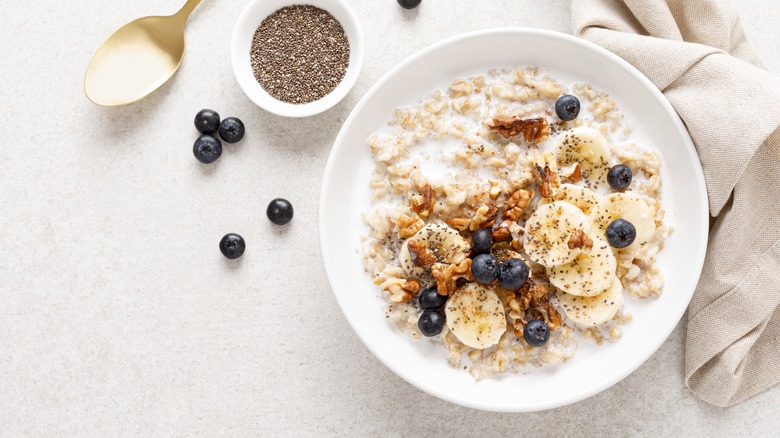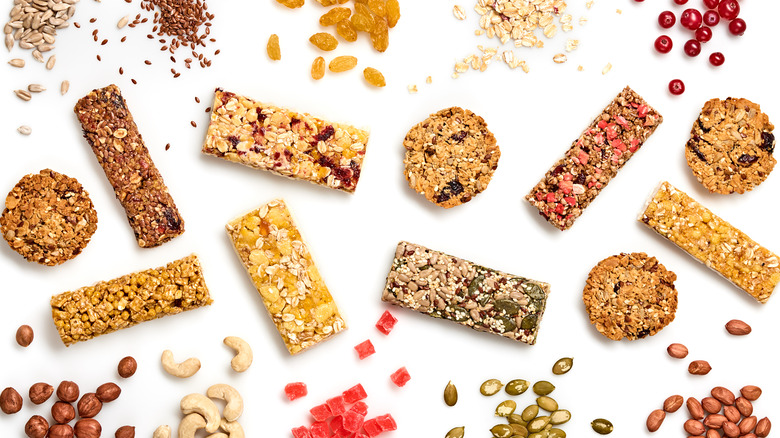Study Finds Not All Fiber Is The Same And Some Can Be Hazardous To Your Health
Fiber is a key component of a balanced diet and healthy lifestyle. University of California San Francisco Benioff Children's Hospital (UCSF Benioff Children's) says dietary fiber helps the body digest and eliminate food waste, cleans the colon, helps you feel fuller, and helps keep blood sugar levels balanced. Dietary fiber is found in many fruits, vegetables, legumes, and whole grains. This type of fiber can actually help you manage weight and could even help prevent some cancers.
To see the most significant health benefits from dietary fiber, the Mayo Clinic recommends eating a wide variety of foods rich in both soluble and insoluble fiber. But all fiber is not created equal. A recent study finds not all fiber is the same, and some can be hazardous to your health. The animal trial studied the effects of fermentable fiber on mice and found that eating this kind of fiber had serious health consequences.
Inulin may increase risk of liver cancer
The 2022 study, published in Gastroenterology, evaluated whether fermentable fiber increased the risk of liver cancer in mice with a specific congenital defect. 90% of the mice showed no signs of cancer when fed a standard diet. But the mice who ate diets enriched with the fermentable fiber inulin became more likely to develop liver injury and liver cancer. The mice also had elevated bile acid (BA) levels, a marker that predicts liver cancer.
Inulin is a soluble fiber that occurs naturally in plant foods like raw onion, garlic, wheat, barley, and chicory root (per Medical News Today). When eaten in its natural form, inulin is considered safe for most people. But inulin is also artificially manufactured, either as chicory inulin or as high-performance (HP) inulin, which is made by removing some molecules from natural inulin. Food manufacturers add inulin to processed foods like protein bars, drinks, yogurt, and baked goods to replace sugar and fat and to improve texture.
WebMD considers inulin a beneficial prebiotic fiber that helps good bacteria grow in the gut, helping to maintain a healthy gut biome. But the 2022 study, along with another 2018 study by researchers at the University of Toledo, shows inulin increases the risk for liver cancer in some mice (via Genetic Engineering & Biotechnology News). Human studies are needed to determine if inulin has similar effects on people, but for now, it may be safer to limit your consumption of processed foods.


